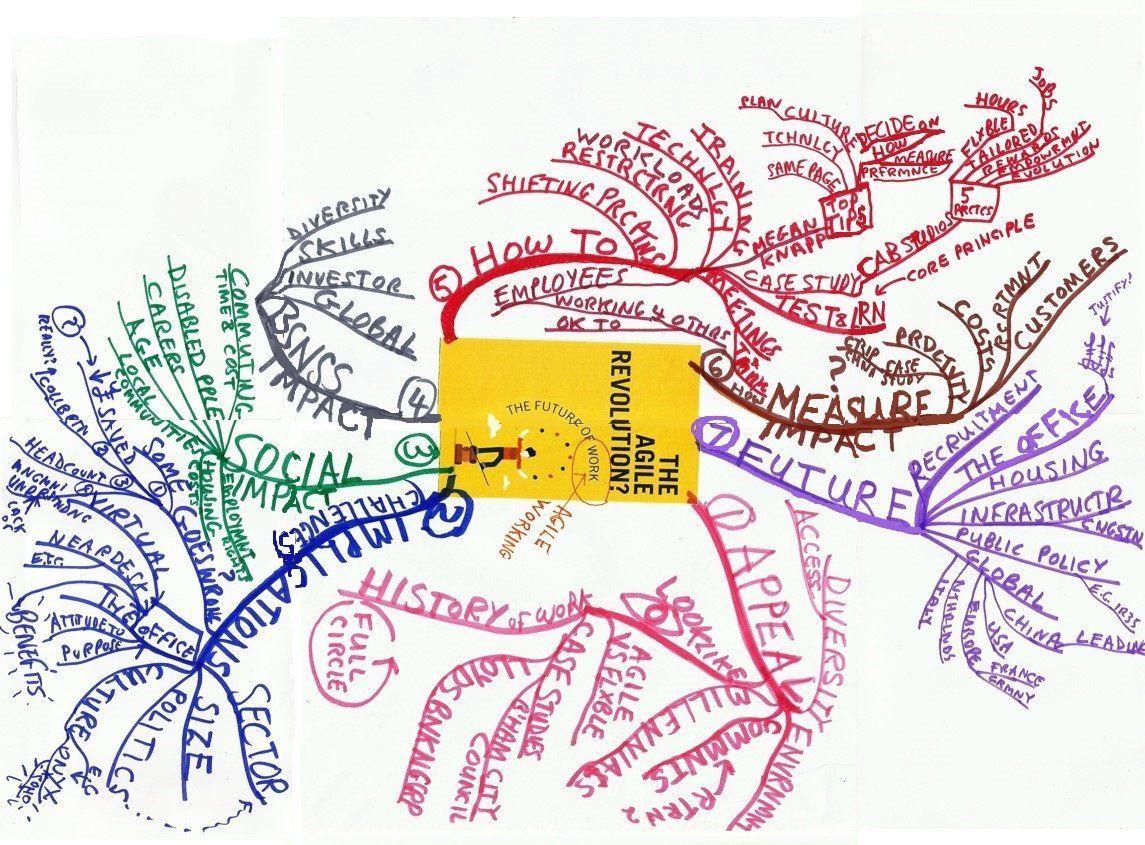The Agile Revolution?
- by Andrew Parkinson
- •
- 12 Dec, 2017
- •
Anne Cantelo and Charlotte Clarke on the future of work

This little book by Anne Cantelo and Charlotte Clarke is a guide to employers on agile working, not really agile software, though clearly the whole idea comes from there, as acknowledged in the opening chapter: "In February 2001, a group of IT consultants met at a ski resort in Utah to discuss how they could uncover better ways of developing software."
Starting with the Agile Alliance and the Agile Manifesto, the book quickly gets into "the much wider revolution that is breaking down the structures around work as we know them", a technology driven revolution precipitated by the advent of the internet and smartphones coupled with the social and economic challenges we are currently facing.
The authors do a great job of describing the appeal of agile working, its (potential) social and business impact, and responding to some of the practical challenges as well as providing a "how to", before closing with a consideration of the future of agile working.
I like that the book title ends with a question mark, because , though many of us are doing some form of remote working and many employers are seeing the financial benefits of reducing the provision of office space, my drive this morning, into a workplace on the edge of the city near where I live, taking nearly two hours to travel a "ten minute" distance, along with hundreds of other unhappy looking people doing the same thing, leads me to question whether agile working is yet near to being a revolution, and indeed to hope that it will soon become one!
Starting with the Agile Alliance and the Agile Manifesto, the book quickly gets into "the much wider revolution that is breaking down the structures around work as we know them", a technology driven revolution precipitated by the advent of the internet and smartphones coupled with the social and economic challenges we are currently facing.
The authors do a great job of describing the appeal of agile working, its (potential) social and business impact, and responding to some of the practical challenges as well as providing a "how to", before closing with a consideration of the future of agile working.
I like that the book title ends with a question mark, because , though many of us are doing some form of remote working and many employers are seeing the financial benefits of reducing the provision of office space, my drive this morning, into a workplace on the edge of the city near where I live, taking nearly two hours to travel a "ten minute" distance, along with hundreds of other unhappy looking people doing the same thing, leads me to question whether agile working is yet near to being a revolution, and indeed to hope that it will soon become one!





